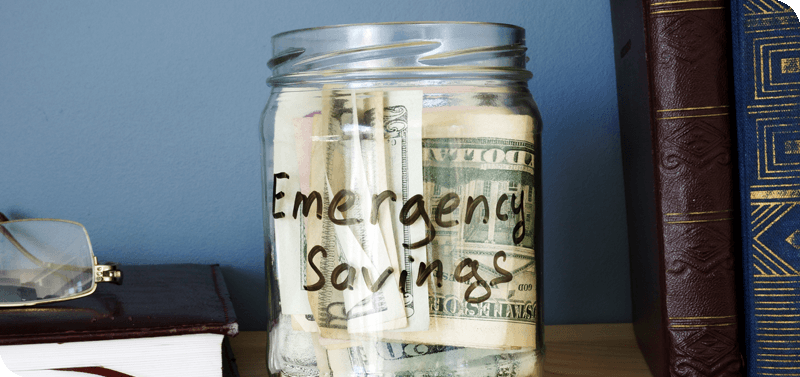When you have a heavy debt burden, the last thing on your mind is your credit score. Your only priority is to make at least the minimum monthly payments to stop debt collection phone calls. But, don’t dismiss the importance of your credit score during this challenging time. The way you handle your debt directly affects your credit score and your future financial health. Your credit score can influence where you live, the car you drive and even whether you snag your dream job.
Take these actions to improve your credit score when you have a heavy debt burden.
Your three-digit credit score is a representation of your ability to repay future debts. A credit score is used by potential creditors to determine if you are a good credit risk based on your credit history. Financial institutions and creditors report your credit activity to one or more of the major credit reporting bureaus every month. A proprietary algorithmic calculation then takes the data in your credit history report and generates the actual credit score.
Experian, Equifax, and TransUnion are the major credit reporting bureaus that collect data used by the two leading credit scoring agencies: FICO and VantageScore. This means your credit score will vary depending on which credit history report is used and which credit scoring agency generates the score. Your credit score also varies each month based on updates to your credit history report.
Before you can see changes in your credit score, you first need to know what’s in your credit history report. Receive a copy of each of your credit history reports for free by requesting them at AnnualCreditReport.com. When data in your reports improve, so does your credit score. Each credit report provides instructions on how to review the report and highlights factors impacting your particular score.
Regardless of how much debt you owe, data in your credit report might contain errors. Clearing up inaccurate information is one of the best ways to improve your credit score. You may challenge incorrect data in the reports by following the dispute policy of each credit reporting bureau.
Since credit activity may be reported to one or more crediting bureaus, don’t assume that a correct report with one bureau means there are no errors on your other reports. Consumers should review each report for accuracy. Pay particular attention to incorrect:
Depending on the credit dispute, you must provide documentation to support your claim of inaccurate data.
Credit scoring agencies agree that the following factors influence your credit score but may differ slightly on the weight given to each:
While you are tackling your debt payments, remember that your payment history and credit utilization have the most significant impact on your credit health and subsequently - your credit score. Pay all of your bills on time, including your rent, utilities, and cell phone service provider. These companies may not report monthly payment activity to the major credit reporting bureaus, but often report delinquent, collection and defaulted accounts.
You’ll also want to avoid settling your debt, if possible. Settled accounts hurt your credit score since it demonstrates that you could not repay the debt as initially agreed.
Check your credit score to see how your debts are affecting your financial health. Check your credit score by purchasing your score from Experian, Equifax or TransUnion . Some credit card companies and mortgage loan lenders provide access to a customer’s credit scores at no cost. If you have a credit card or a mortgage, call their customer service number for details. As you continue to make timely payments and reduce your credit utilization, you’ll likely see your credit score increase.
If you manage your checking, savings or money market accounts responsibly, e.g., no overdrawn accounts at your financial institution, then you may be able to improve your FICO score. In 2019, UltraFICO Score will allow consumers to use this data to help build and enhance their credit score.
Do you rent your home or apartment? Your landlord can report your rent payment history to the credit reporting bureaus at your request. The new FICO 9 credit scoring model can add this data which may result in an improved credit score. Since your ability to access future housing can be based on your creditworthiness, working with your landlord to report this information is a good idea.
The choices you make about your debt will affect your credit score. Avoiding late or missed payments should be your priority. Then, focus on paying down your debt and keeping credit utilization low.
If your monthly payments aren’t reducing your debt fast enough, it could be due to high-interest rate charges. Your credit card issuers may temporarily lower your interest rate upon request. But, if they decline, you do have other options. Consider transferring your consumer debt to a low interest rate credit card with no annual fee. Doing so could save you money and help get you out of debt quicker since you’ll have less to repay.



3 Min Read
One of the most effective tools for preventing a large-scale financial disaster is an emergency fund…
Learn about Emergency Funds7 Min Read
The 50/30/20 rule is a simple, practical rule of thumb for individuals who want a budget that is easy, yet effective, to implement…
How to Set Your New Budget3 Min Read
Even if you’re just starting your first real job—actually, especially if you’re just starting your first real job—it’s time to start thinking about retiring…
How to Plan for RetirementPrince George's Community Federal Credit Union does not provide, and is not responsible for, the product, service, or overall website content available at a 3rd party site. We do not endorse the information, content, presentation, or accuracy nor makes any warranty, express or implied, regarding any external site. Our privacy policies do not apply to linked websites.
You should consult the privacy disclosures on any linked site for further information. Thank you for visiting our website.
To help the government fight the funding of terrorism and money laundering activities, federal law requires all financial institutions to obtain, verify, and record information that identifies each person who opens an account. What this means for you: when you open an account, we will ask for your name, address, date of birth, and other information that will allow us to identify you. We may also ask to see your driver's license or other identifying documents.